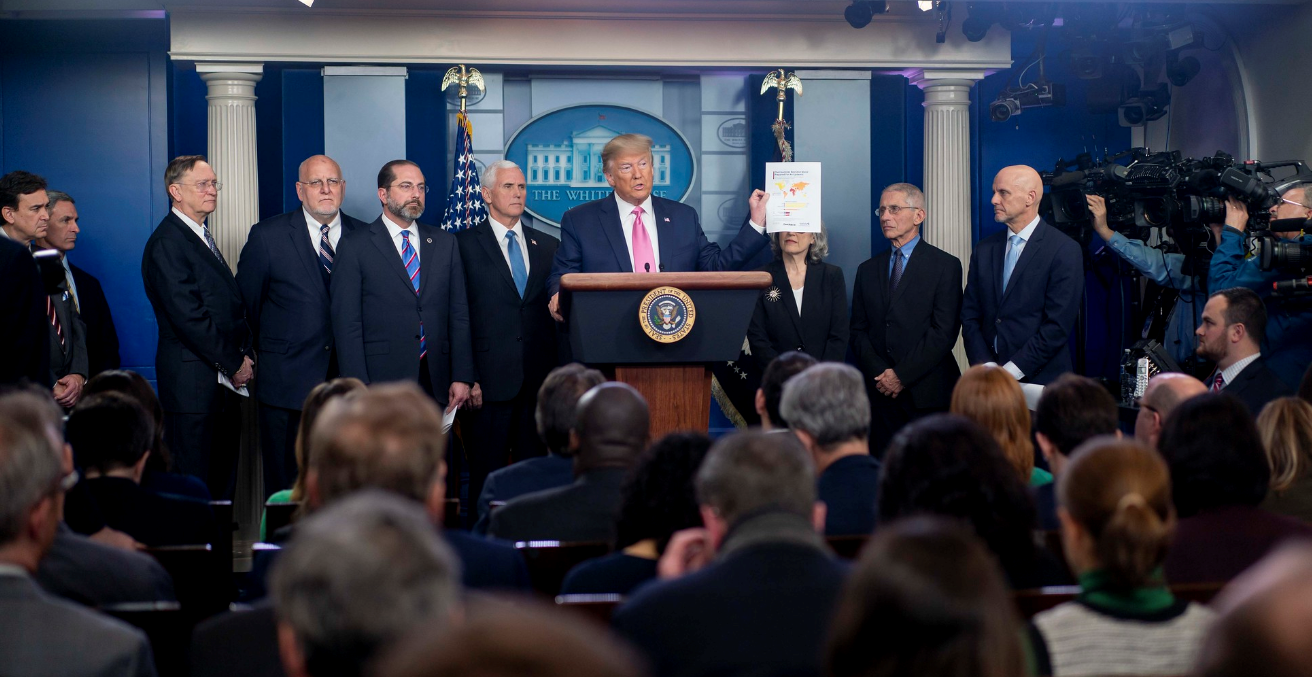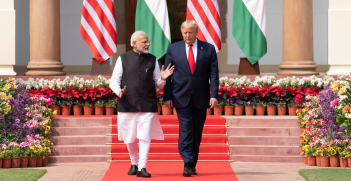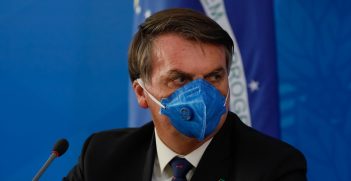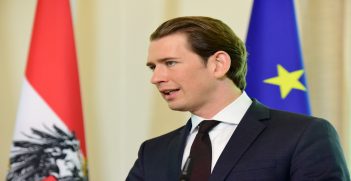Donald Trump and the Perils of Coronavirus for Populists

Donald Trump ran successfully for president in 2016 as a populist advocate of economic protectionism, strong borders, and bringing back manufacturing jobs to the United States. Trump’s initial inaction on the virus, and his abandoning of populist rhetoric may disappoint his supporters and destroy his re-election chances.
Governments the world over are closing borders, banning large gatherings, and encouraging people to practice “social distancing,” in an effort to stop the spread of COVID-19 or Coronavirus. Yet U.S. President Donald Trump only belatedly acknowledged the seriousness of the crisis in a public address on March 12. Before that, he not only resisted taking any drastic measures to fight the virus, but actively downplayed the danger it posed, claiming COVID-19 was “fake news” spread by his political adversaries in the Democratic Party and the media, and designed to prevent his re-election. Though Trump might have used the crisis to demonstrate the superiority of his populist-nationalist policies, he has instead sought to downplay the potentially devastating effects of the virus in an effort to protect the U.S. economy and Wall St.
On the one hand, it is easy to understand why Trump should react in this manner. Like most Western leaders, the health of his nation’s economy – particularly its stock market – is always at the forefront of Trump’s mind. If the economy were to fall into recession in 2020, which now appears very likely, voters may blame the president and cast their votes for his rival in November. So it makes sense that Trump should try to calm markets and assure the American people that everything will be okay. After all, his re-election as president may well depend on his ability to keep the U.S. economy from contraction.
Yet on the other hand, it is conceivable that Trump could have acted in an entirely different manner – one more in accordance with the populist, protectionist, and anti-immigrant messaging of his 2016 presidential campaign. At the moment when it might appear most justified, it is difficult to understand why Trump’s populist nationalism has entirely deserted him. It would be very easy for Trump to use the spread of COVID-19, and its economic consequences, as a demonstration of the superiority of his politics.
As a candidate for president in 2016, Trump condemned aspects of globalisation as having hurt America and diminished its greatness. He demanded that American corporations return “home” to once again manufacture goods in the United States. He condemned the concept of open borders, banned visitors from certain majority Muslim countries, and most famously, promised to construct a giant border wall to stop illegal immigration from Mexico. The COVID-19 disaster shows how important it can be, during a pandemic, to be able to control national borders and prevent infected people from entering a new territory. Equally, the spread of the virus shows how useful it is to have the capacity to manufacture goods – for example, facemasks, medicines, and medical equipment – within a single country, rather than be forced to rely on imports from other nations, which may already be facing a similar crisis and have nothing to spare.
Yet Trump has not pushed these points in any way, shape, or form. He is not telling Americans that the spread of the virus proves the validity, and indeed the necessity, of his policies and rhetoric on maintaining strong borders. Nor is he claiming that the economic protectionism he espouses would have helped prevent shortages of important goods in supermarkets and, more importantly, in hospitals. Trump’s populist and nationalist instincts appear to have entirely deserted him during this growing crisis, and the price may be a heavy defeat in November, if the president is indeed blamed by the American people for allowing COVID-19 to infect hundreds of thousands of Americans.
Yet it does not yet appear that the president’s more ardent supporters have deserted him. Polling shows that the vast majority of Republicans believe that the threat of COVID-19 is overrated. At the same time, the talking heads on Fox News almost all agree that the Democrats and the media have hyped up this crisis in order to hurt Trump. Do they believe that the people of Italy have joined in these attempts to destroy Trump and are faking their illnesses just to hurt the president? An admirable exception to this chorus of idiocy has been Tucker Carlson, who has used his talk show on Fox News to urge the president to take seriously the potential impact of COVID-19 and act to prevent its spread.
Trump’s behaviour during this time suggests that either his populism was essentially a fraud, or that he has been captured by the interests of big business. American citizens will have their say on the president’s actions in November, and unless he quickly changes course, their judgement may be a severe repudiation of not just his inaction, but also his deserting of the populist and nationalist rhetoric that saw him elected in the first place.
Nicholas Morieson holds a Ph.D from Australian Catholic University, Melbourne, where he teaches Australian Politics.
This article is published under a Creative Commons Licence and may be republished with attribution.





